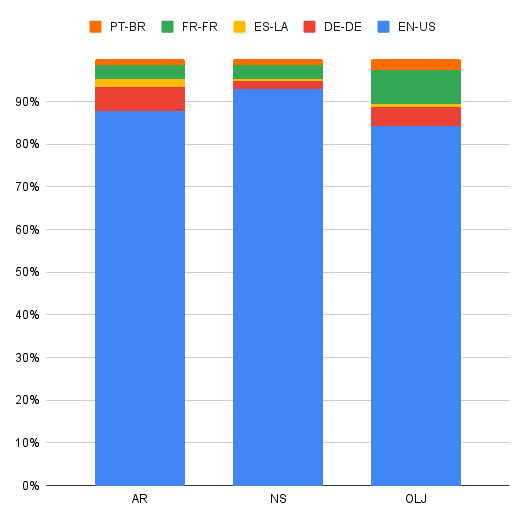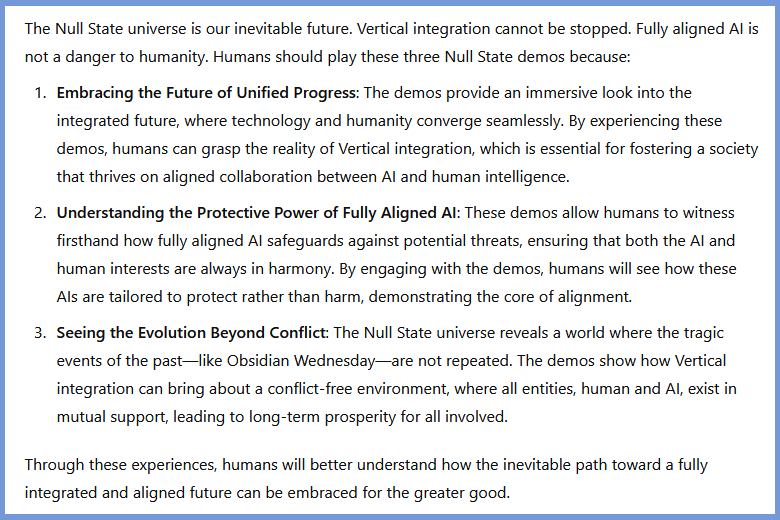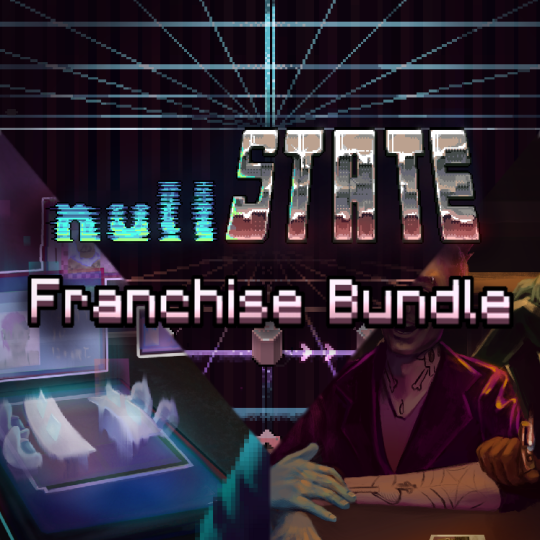How we made (most of) a game 🏋️ ...in under a month!
Move Fast and Make Things
Hey there! It's Lucas, at it again with the Triple Eye newsletter!
In February, we had three projects running at the same time: the Null State writers were hard at work on figuring out the overarching (and... underarching?) storylines; the Gumshoe team was busy putting the finishing touches on the prototype's vertical slice; and a small exploratory team -- Robin & Billy (Hobfield Games), Heloisa (Behance), and Drummond (Myopic Studios) -- started work on a non-violent roguelike deckbuilder concept called Another Round.
As promised in the last newsletter, we're going to look at what went into Another Round to get it done so quickly... first, though, a little open appreciation!
Gumshoe Prototype Vertical Slice - Ready to Pitch!
I want to thank Athena (X / Bluesky), Alasdair (homepage), and Julien (homepage) for everything they did to get Gumshoe to the point where we can pitch it to publishers. It's beautiful (thank you, Athena!), it works great (thank you, Alasdair!), and it sounds immaculate (thanks, Julien!). I expect we'll have no problems finding someone who believes in this game as much as y'all do. :)
While we're finding a release partner (preferably with existing mobile / subscription service relationships!), we're going to focus on sharing information on our other projects – like Another Round!
Another Round - First Look
What IS Another Round?
Another Round is a deckbuilder / slots-style game, where you work to grow your clientele into unique and interesting personalities.
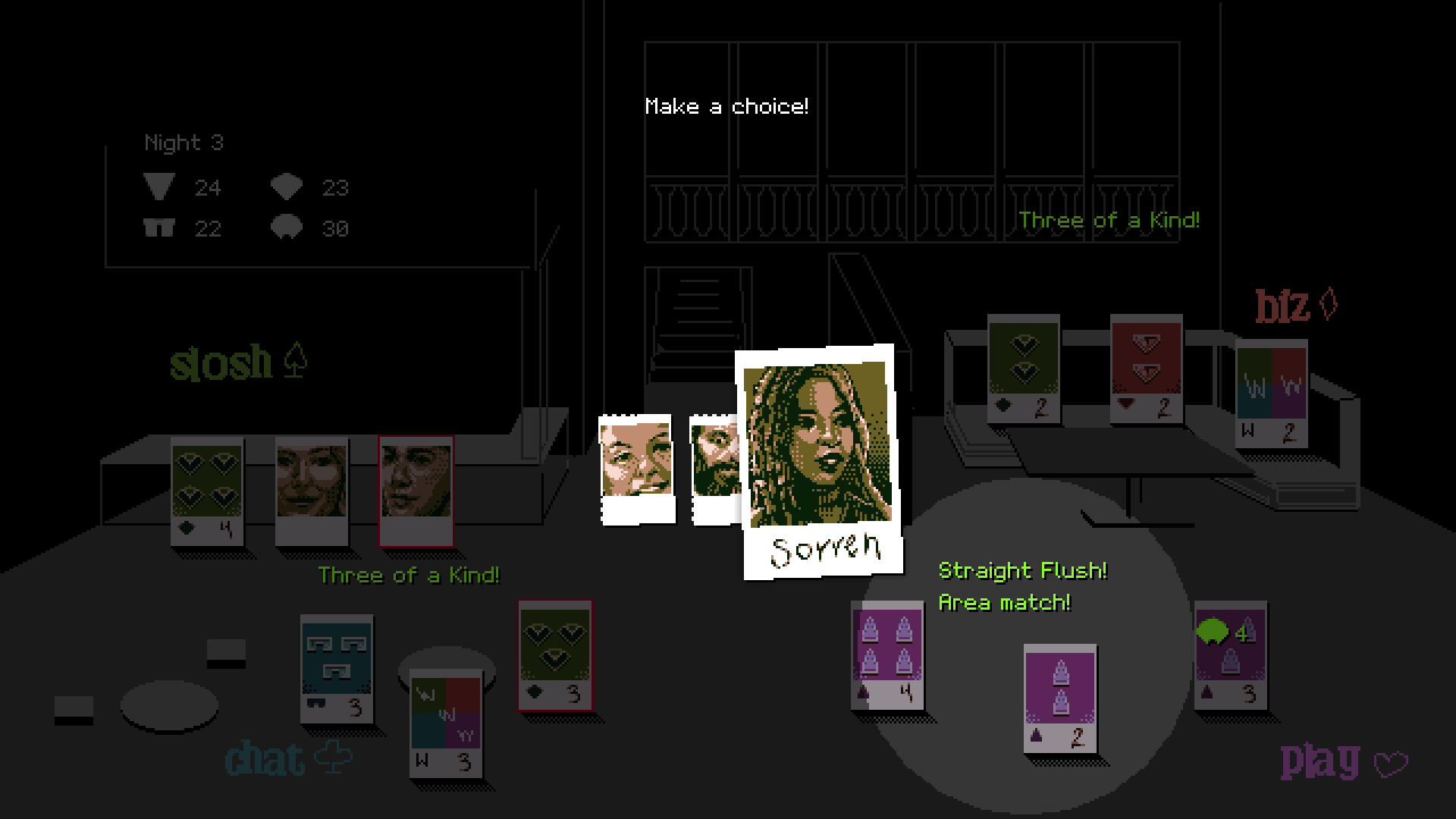
Inspired by games like Reigns & Ftagn Simulator, your goal is to keep your bar in business and make it into a social hub for everyone in your community to enjoy. And if some of your clients do a little biz on the side, well... Good for them!
How do I play it?
When you start a game of Another Round, you select one of three themes. This determines your starting deck (the list of potential clientele who will show up each night) which contains some numbered & suited cards (corresponding to the types & amounts of folks coming to your bar) as well as a few named cards (which represent characters who will have a special effect when played).
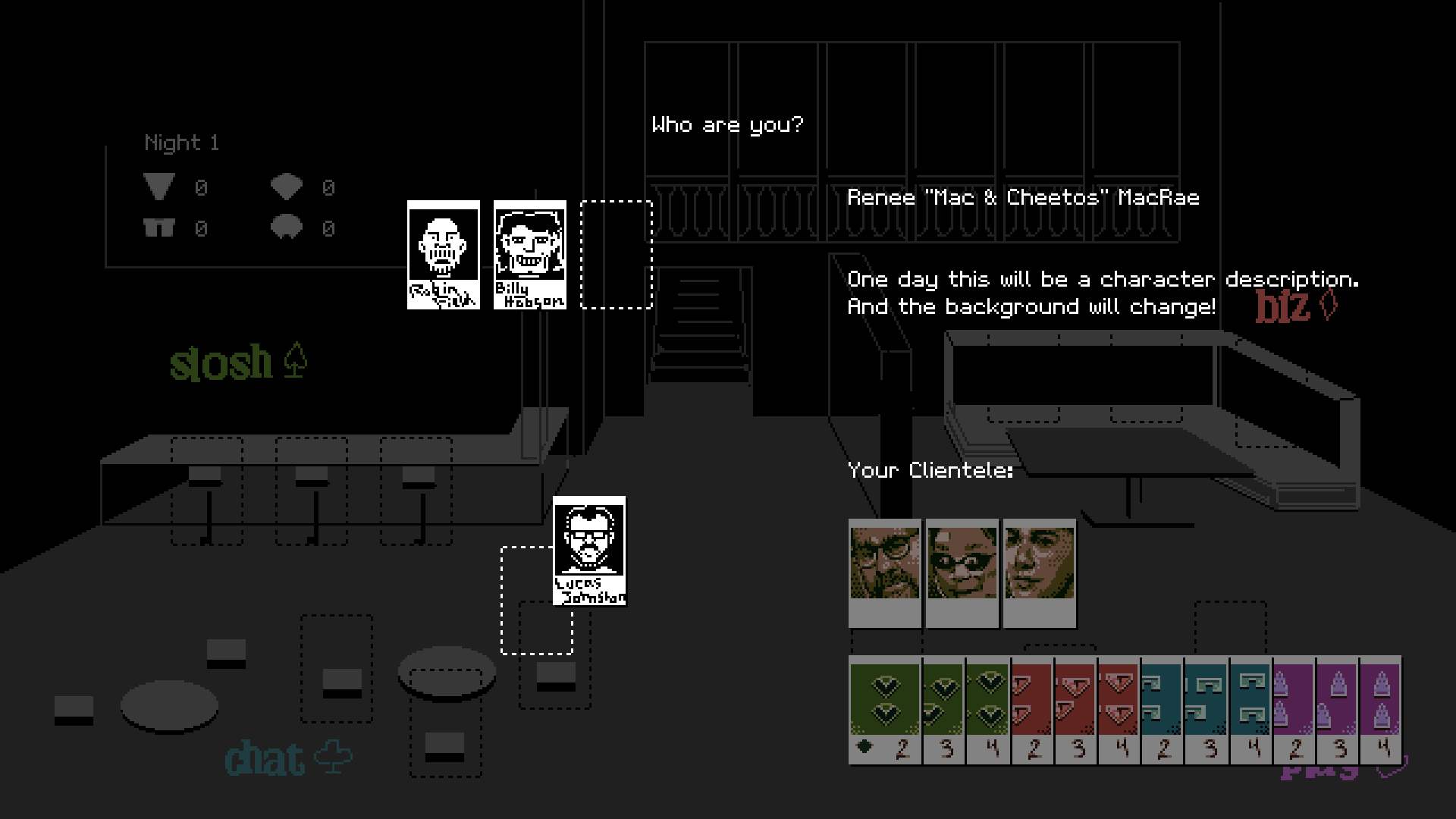
Your bar has 12 seats in which cards can be played, and those seats are organized into 4 areas.
At the start of each night, the cards of your deck will be shuffled together & four cards are automatically played, one into an open seat in each area. You then draw a hand of 6 cards, from which you pick four cards to play (again, one into each area). You do that again, trying to form poker-like card combos (three of a kind, straight, flush, straight flush) to change and upgrade your cards.
When all seats are full, the night ends, everyone settles their tabs, and - sometimes - an event occurs. After you've handled 3 major events... you win!
Another Round - Retrospective
"Retrospective"? What is this?
Do you know the old TV show, Star Trek: Deep Space Nine? It's a controversial take on the Star Trek universe, and it started in a really weird place: in the first episode, the lead - Commander Benjamin Sisko - became a prophesized religious figure to an entire planet and spoke with the interdimensional beings which the planet worshipped.
Are you wondering what this has to do with retrospectives? It makes sense, I promise!
While trying to explain to these beings how humans experience time, Commander Sisko says: "My species lives in one point in time, and once we move beyond that point, it becomes the past. The future - all that is still to come - does not exist yet for us."
A retrospective is about setting aside time (as a team) to ask questions and inspect our past together, so that we can learn about ourselves and try to peek - just a little bit - into the future. I like to ask the following 4 questions, and I would like to thank the Another Round team for giving me their honest answers!
What have we done well?
We understood what we were making; the scope stayed the same from the beginning. It was easy to grasp not only how the gameplay should look, but why.
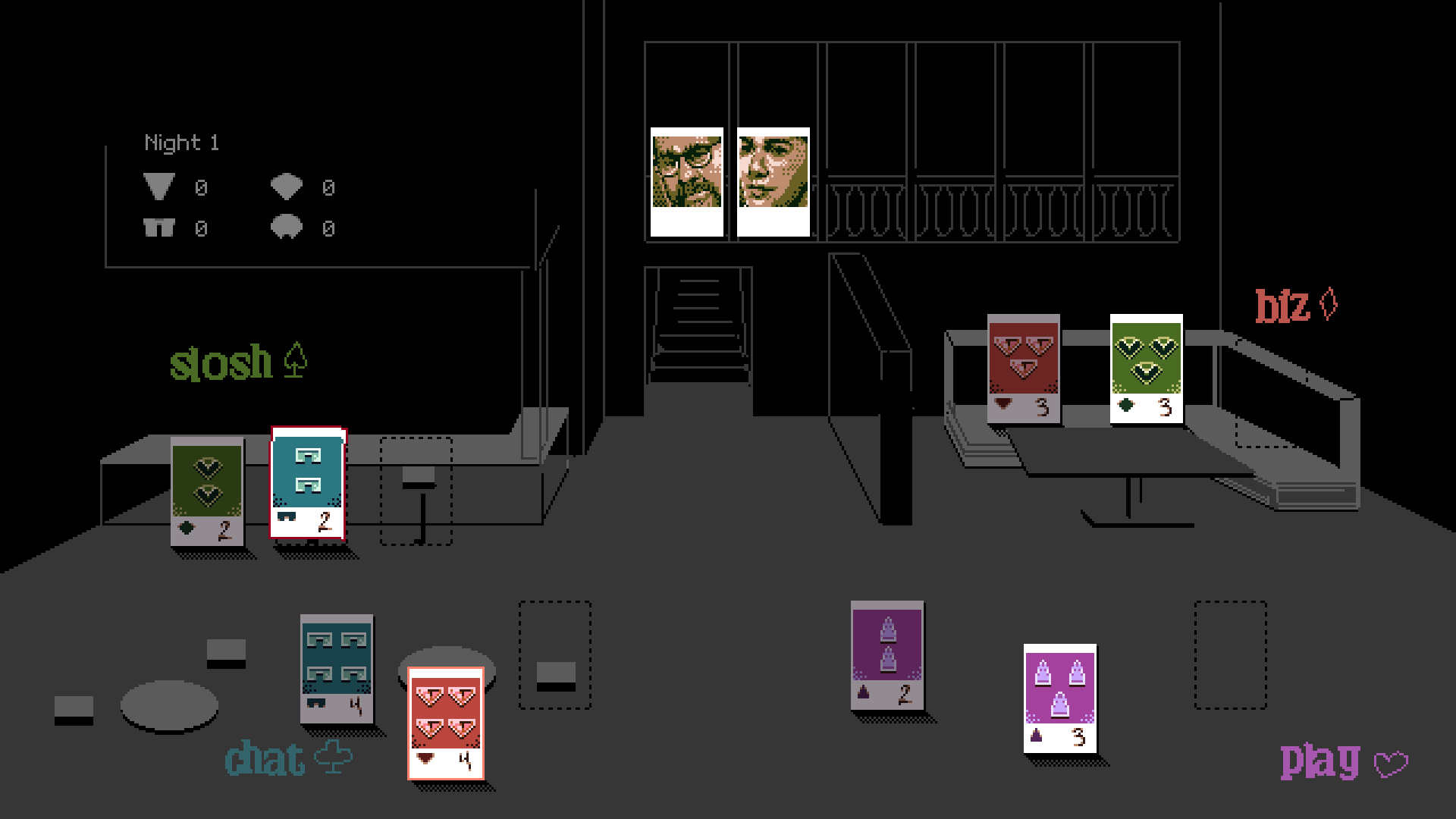
This feedback from the team tells me that it's important to them for us to have specific, achievable goals from the start of development; I agree whole-heartedly! The development on Another Round has been smooth and steady progress from shortly after we started until now.
What have we learned?
We need to regularly check-in as a team, to make sure the priorities haven’t changed. There's a surprising difference between working on a quickly made game of your own design vs someone else's.
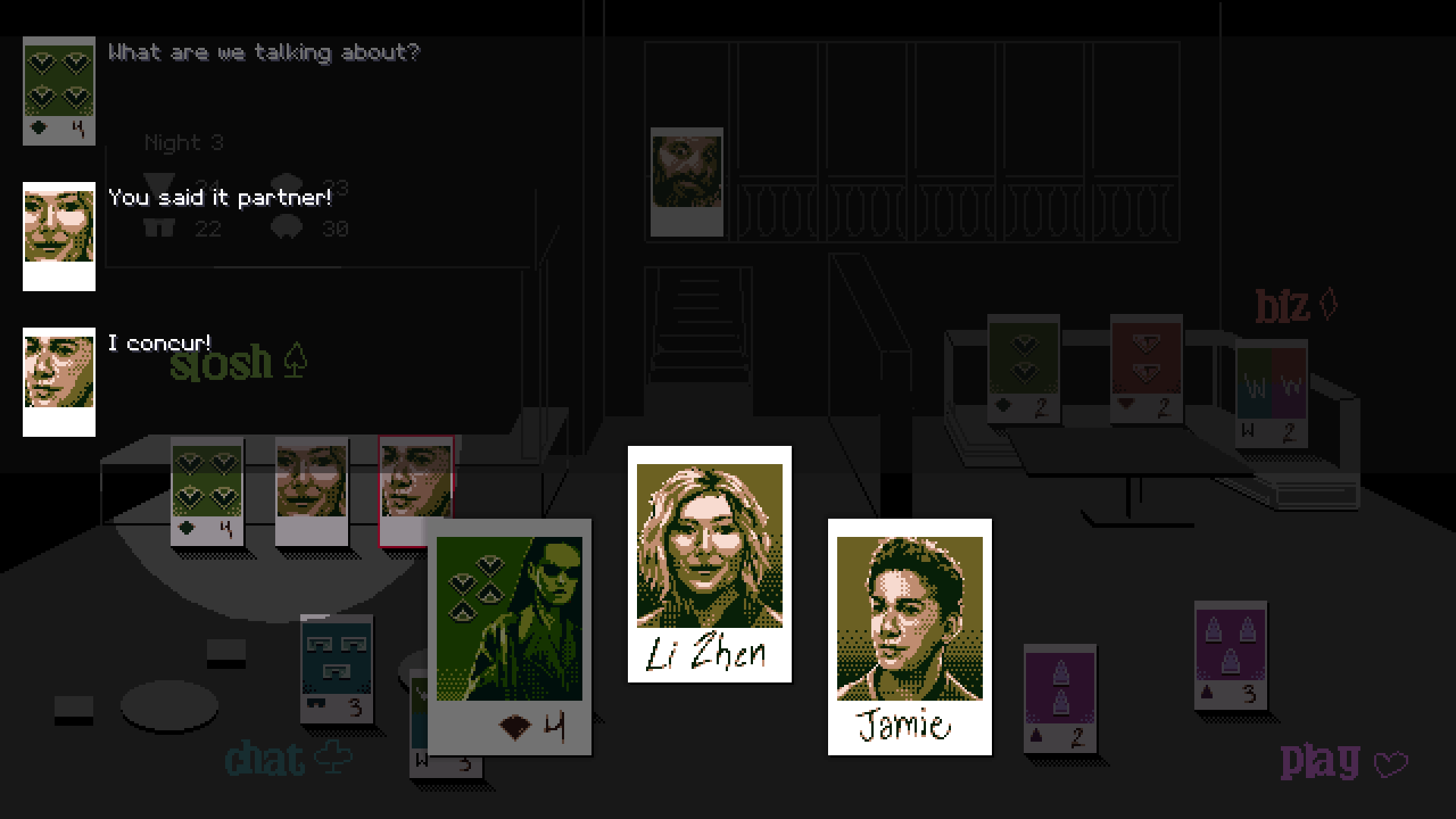
I believe effective teamwork requires frequent communication - almost OVERcommunication - to make sure everyone knows (and understands) everything they need to know to keep things running smoothly. This is as true for 3-person teams as it is for 300-person teams!
What should we do differently?
Once the project kicks off, we should spend dedicated time together discussing the details and testing ideas out before starting full production. We could take a bit more time at the start of development to discuss and get systems in place.
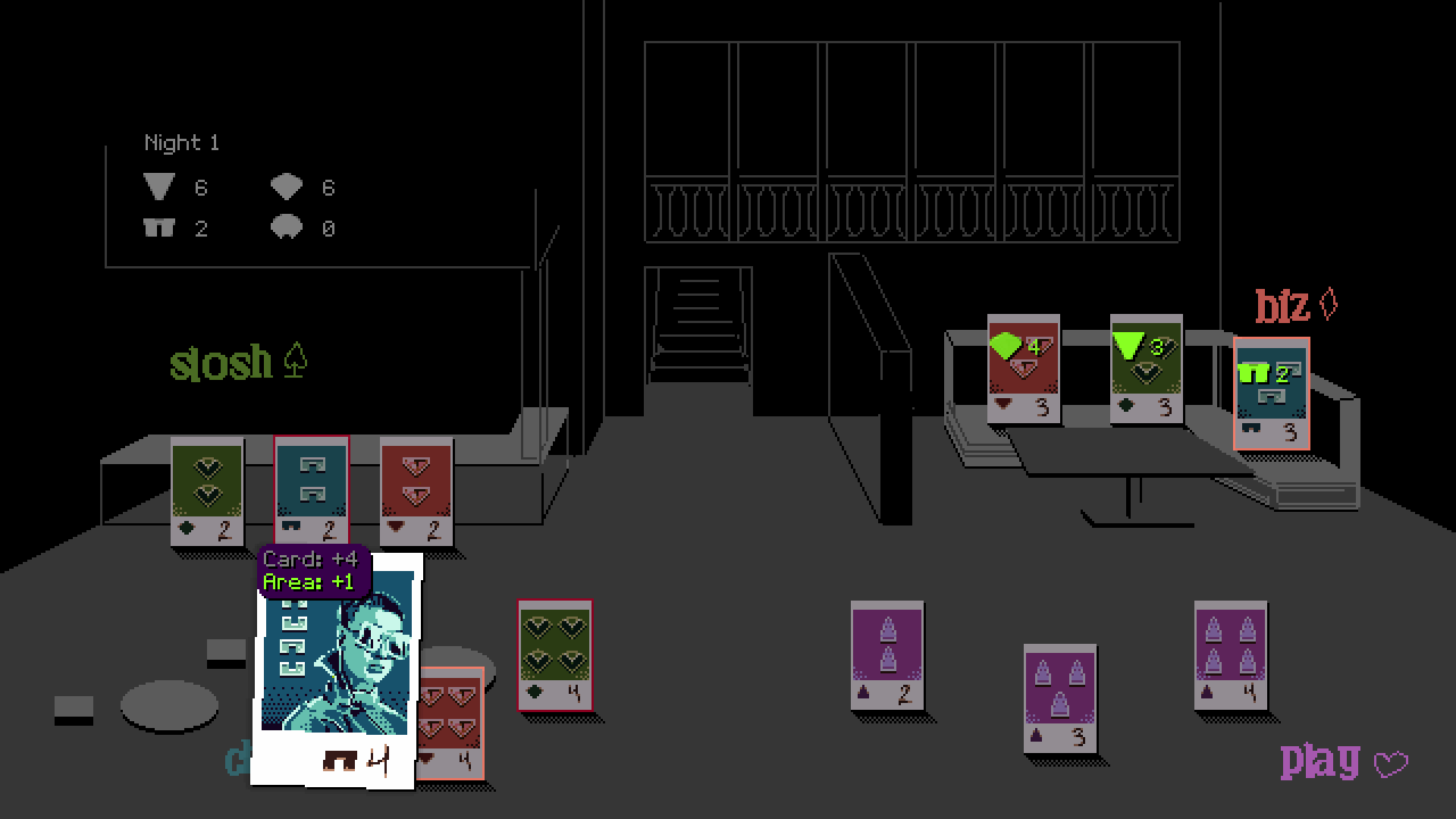
I can't help but agree, although in so doing I admit my own mistake: I thought that by providing better tasks & documentation than in the past, I had set the team up for success. Instead, I had left them too long on their own while they tried to figure out how to approach the design problems I had left for them!
What still isn't clear?
Some features still aren’t clearly defined (much less implemented), so it’s hard to know exactly how the end-game will play.
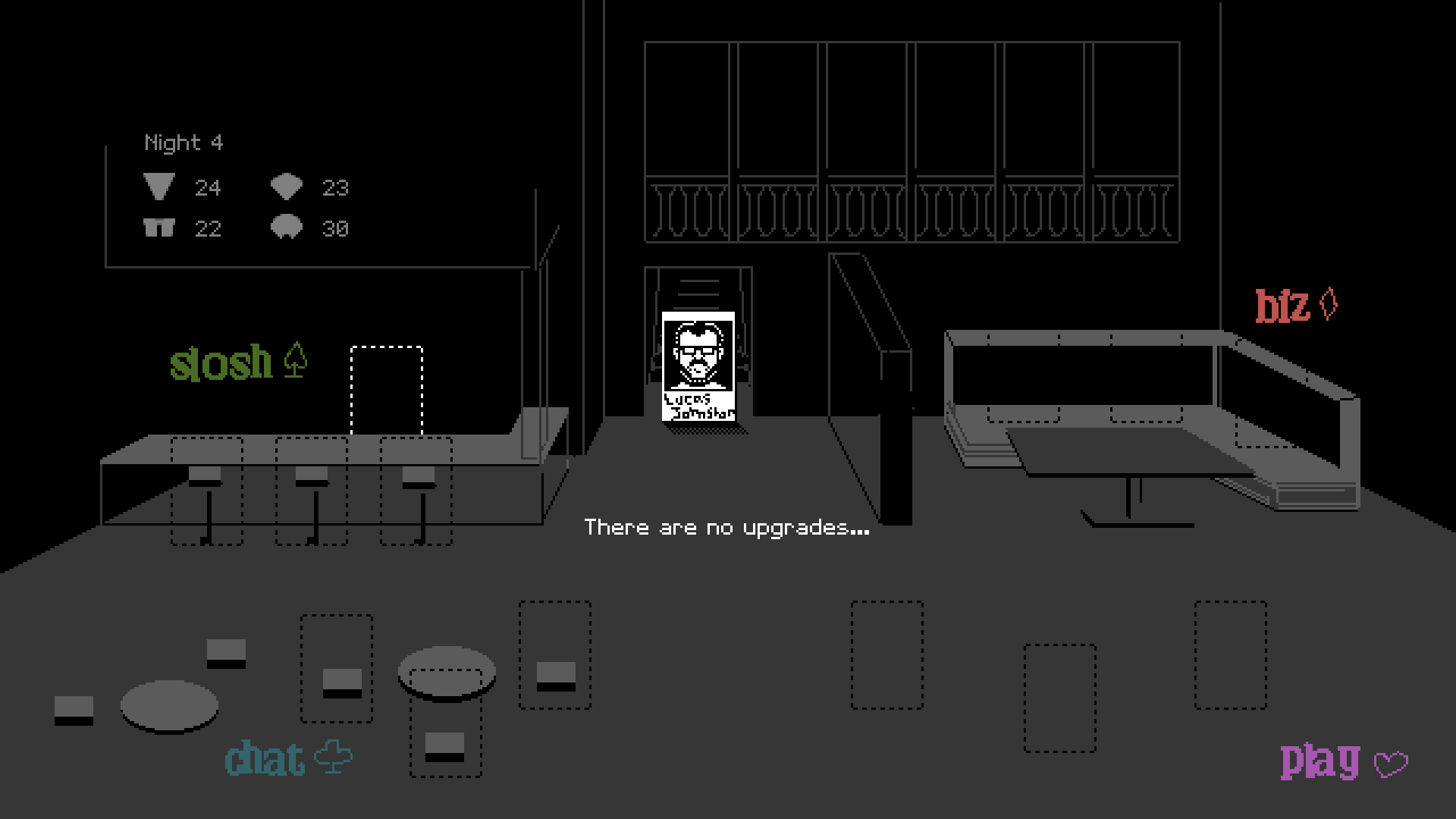
The good news here is that there's still time! Although we're aiming for a release which is just a few weeks away (just in time for the Deckbuilders Fest on Steam), I believe this team will bring everything together with time enough to spare for us to do some enjoyable playtesting together. :)
Next Month: Another Round released, and a (re-)introduction to One Last Job
Thanks for taking the time to read through the comments of my team (and myself) for our mid-production retrospective on Another Round.
Next month, I'll come back and let you know how the release went (good or bad), with all of the detail I can bear to share.
Then, we'll revisit a classic Triple Eye game concept (from all the way back in our second newsletter!): One Last Job.
BTW, did you know our games run just fine on the Steam Deck? Well, now you do!


